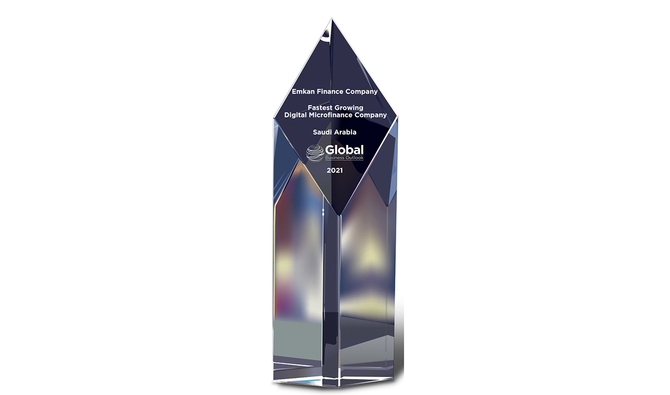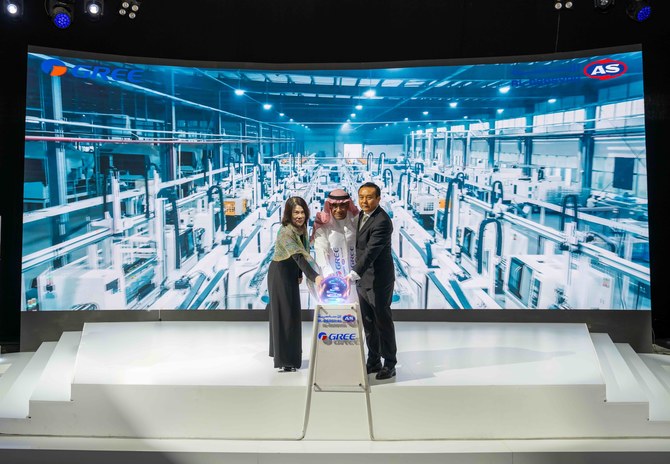Emkan, an omnichannel fintech brand delivering digital financing solutions to Saudi nationals seeking microfinancing assistance through personal and consumer loans, has been named the “fastest growing digital microfinance company” in Saudi Arabia at the Global Business Outlook (GBO) Awards 2021.
The GBO Awards extend to the private and public sector, recognizing the work of businesses across performance, innovation and drive to create industry value.
Saud bin Ghonem, CEO and board member at Emkan, said: “We are honored to be the recipient of this prestigious award and to be recognized for our operations that have remained strong and steadfast throughout the pandemic. We have also strengthened our processes by building trust and long-term relationships with customers. Our transparency and security in every step of the customers’ journey and connecting with trustworthy institutions has also been a vital part of our growth and development as a company.
“With critical themes such as personal instant finance services and end-to-end digital experience driving the financial industry forward in the upcoming period, we will continue sharing innovative ideas and practices. We plan to further expand and enhance our service portfolio in the coming period. Some offerings that will be added include installment finance, auto finance, SMEs finance and credit card issuance.”
GBO Awards seeks to recognize and reward excellence in businesses around the world. The awards are designed to facilitate the outstanding work of businesses and business leaders across industries including banking, finance, real estate, telecom and aviation among others.
Launched in 2020, the Saudi-based Emkan provides innovative financial solutions that fit the needs of all segments of society working in the government or private sectors. The company operates under the authority and supervision of Saudi Central Bank and provides financial solutions compatible with the Islamic law, through easy and seamless mechanisms.















